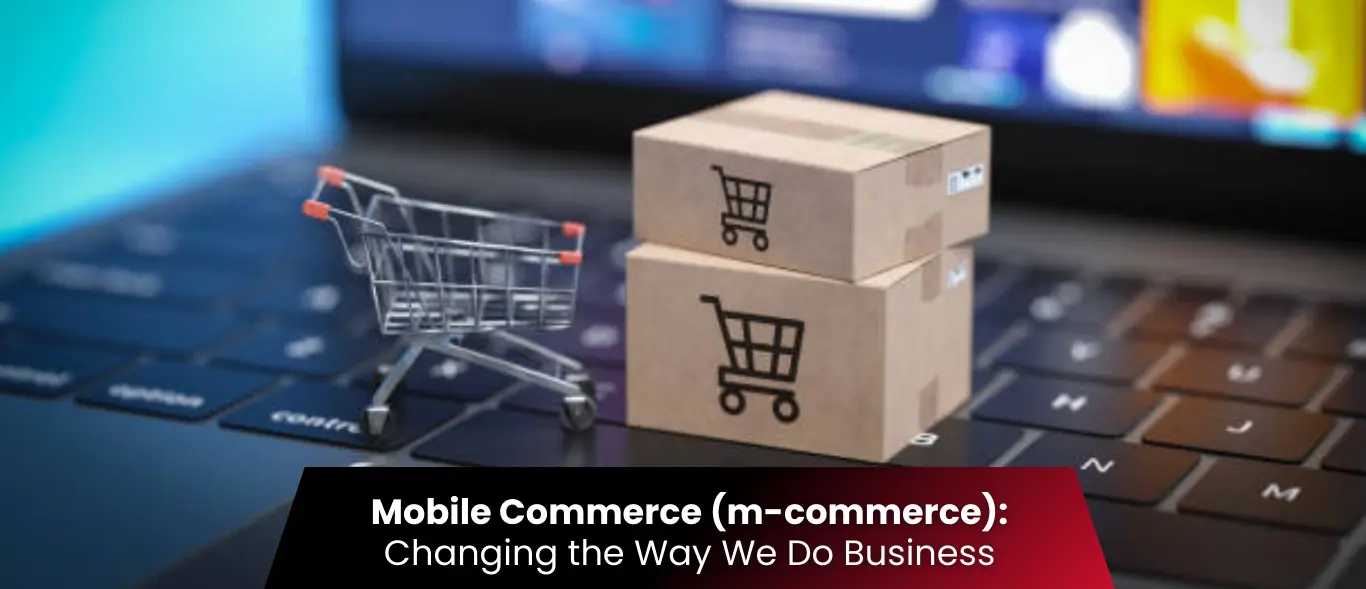What is m-commerce (Mobile Commerce)?
How mobile commerce (m-commerce) is changing the way of doing businesses? Mobile Commerce, or m-commerce, refers to the new way companies do business centered on the increasing use of mobile devices like phones, tablets, and smartbooks.
First developed as SMS-based services in the mid-1990s, m-commerce has shifted toward using applications on the iOS and Android platforms.
This trend has also been mirrored by phone makers in the past five years, with major mobile manufacturers like Apple and Samsung integrating electronic payment services into their phones, and many banks now offering mobile banking apps. So in what ways is m-commerce shaking up the way we do business?
How does M-commerce affect? How business is conducted
One of the key effects of m-commerce has been the increased focus on app development. M-commerce has also changed the nature of many e-commerce websites.
With customers increasingly prioritizing the convenience of mobile platforms, online retailers like Amazon and eBay have begun allocating more resources to optimize the mobile experience.
For Amazon, streamline the processes for finding associated items and checking out to reduce the time users spend waiting for each page to load and the likelihood of them closing the app before a purchase is completed.
Once a user closes the application, the likelihood that they will make the purchase is very low.
eBay, on the other hand, is maximizing the mobile friendliness of its website so that users are encouraged to access it on mobile devices and, more importantly, use eBay’s services.
This is achieved in a few key ways: First, adjusting items when setting up web pages so that the essential qualities, such as the search bar, options bar, and item description, are rearranged to better depict and allow access to the most relevant parts of the shopping experience without losing the fundamental appearance and feel of the desktop website.
Making m-commerce work for you
While it is helpful to understand how e-commerce companies are surviving in the brave new frontier of e-commerce, how do other businesses find success? After all, many companies have websites but remain focused on brick-and-mortar business.
The answer to that question depends on your company's industry.
Using m-commerce as a company with tangible products
The field of m-commerce offers primary ways for businesses that sell tangible products to enhance their advertising by improving customer access.
With m-commerce, the legwork and physical presence of staff required when selling products can be reduced and streamlined by adopting some of the new options a mobile platform offers.
If you are an airline, for example, you can succeed by investing in mobile ticketing. With mobile ticketing, your customers use an app on their phones to buy a ticket, receive a boarding pass, and always include their loyalty number, improving their overall travel experience by reducing friction.
Meanwhile, airlines need lesser staff and can count on automation to limit access to 1 person per ticket. This means the airline can focus its’ staff on providing superior customer service. Faster ticketing, boarding, and better customer service mean happy customers, and happy customers mean more business.
In poorer parts of the world, access to phones with SMS, Twitter, WhatsApp, etc. has provided the benefits of e-commerce to all sections of society. The village women in India routinely use SMS messages to sell eggs, vegetables, and clothes to customers.
Exchange of product pictures, price negotiations, and delivery receipts are all done via SMS. This brings to the surface a massive amount of cash business that the taxman never tracked.
If, on the other hand, you are a brick-and-mortar retail chain, like Starbucks or Bruegger’s Bagels, you can take advantage of location-based services.
Whereas previously companies sent out nationally available offers and promotions, m-commerce allows companies to geofence customers and send offers and promotions tailored to that user’s interests and location. Adding geolocation as an element to the segmentation scheme increases the offer's relevance, thereby improving the chance of conversion.
Further, tracking and adding the response to the offer in future campaigns creates a virtuous cycle of improved customer loyalty and increased revenue predictability.
Using m-commerce as a non-tangible services company
If you are selling SaaS or AaaS products, m-commerce offers more avenues to access your customers. Companies can reach customers through Twitter, email, and advertising.
In addition, m-commerce has one key advantage over traditional e-commerce: you know exactly who you are reaching out to. With email blasts, you can’t be certain that your message will be received, and you have no way of knowing whether it’s reaching the right person.
It used to be that when a company’s website was accessed via computer, the company had no way of determining if the computer was being used as a private laptop, a family computer, or even a publicly used desktop at an internet cafe.
With m-commerce, however, the mobile device is generally used by only a single person and is unlikely to be shared. As a result, there is a better chance that the intended recipient will read messages sent to mobile devices.
Conclusion: With a mobile device to use as a key connection point, advertisers can now better pinpoint and appeal to their audiences, and companies can utilize the mobile platform to improve their ability to deliver the products their customers want when they want them.
Regardless of your industry, m-commerce offers great opportunities with surprisingly low costs. In the next blog, I will write about the analytics that help marketers convert a lead into a marketing-qualified lead (MQL) and then into a Sale. The tracking provides a powerful way to improve the effectiveness of marketing spend.


